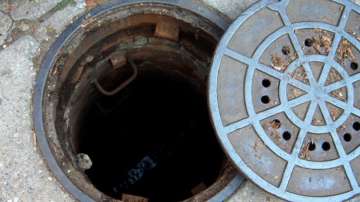UK tests sewage to provide early warning for COVID-19 spread
Taking a step further to control the spread of coronavirus infection, the United Kingdom government is working on detecting traces of coronavirus in sewerage to provide an early warning for local outbreaks.

Taking a step further to control the spread of coronavirus infection, the United Kingdom government is working on detecting traces of COVID-19 virus in sewage to provide an early warning for local outbreaks. The collected data will be shared with the official National Health Service (NHS) Test and Trace network.
The Department for Environment, Food and Rural Affairs (DEFRA) said that the programme, which was first announced in June, has now proven that fragments of genetic material from the virus can be detected in wastewater. This can then indicate where a local community or an institution is experiencing a spike in COVID-19 cases.
“This is a significant step forward in giving us a clearer idea of infection rates both nationally and locally, particularly in areas where there may be large numbers of people who aren’t showing any symptoms and therefore aren’t seeking tests,” said UK Environment Secretary George Eustice.
“NHS Test and Trace is able to use the science to ensure local health leads are alerted and can take action. We are continuing to look at how this programme can be refined as one of the many measures we’re using to slow the spread of the virus and protect local communities,” he said.
DEFRA is joined by the Environment Agency and Joint Biosecurity Centre (JBC) on the programme in England, with a UK-wide group working to ensure coordination between Scottish and Welsh governments and academic projects. The testing is being led by the Environment Agency’s Starcross laboratory in Exeter.
“This initiative is just one example of how we are working across government and with local partners to find innovative, new ways to track the outbreak, slow the spread of the virus and save lives,” said UK Health Secretary Matt Hancock.
“Monitoring and sampling wastewater offer another tool to help us identify outbreaks early on – helping NHS Test and Trace and local authorities target hotspots quickly and effectively,” he said.
Testing has now been rolled out across more than 90 wastewater treatment sites in the UK, covering approximately 22 per cent of the population in England, with plans to expand in the future.
The data will be shared with NHS Test and Trace and inform where new outbreaks may be happening. It means that public health professionals can speak directly to institutions where there may be spikes in infection, the government said.
The project is said to have already shown success in an area in the south-west of England, where sewage sampling data showed a spike in coronavirus material despite relatively low numbers of people seeking tests.
This was passed on to NHS Test and Trace and the local council, who were able to alert local health professionals to the increased risk and contact people in the area to warn of the increase in cases.
Separate work carried out by the UK’s National Institute for Biological Standards and Control (NIBSC) also identified coronavirus material in London sewage in February, before any Covid-19 cases were recorded in this area, providing further evidence of the effectiveness of wastewater monitoring to detect infection rates.
High levels of virus material were detected in March and April followed by a considerable decrease in May and June, reflecting the impact of national lockdown measures on virus transmission.
“This research shows that our wastewater system can be used to identify coronavirus hotspots early, which could significantly help our ability to contain local outbreaks,” said Professor Dame Ottoline Leyser, Chief Executive of UK Research and Innovation.
“We have been monitoring viruses like Norovirus and Hepatitis in human sewage for the last decade, as part of a programme to evaluate levels of these viruses in the community. We added Covid-19 to the surveillance list in March this year,” added Dr Davey Jones, Professor of Soil & Environmental Science at Bangor University.
The World Health Organisation (WHO) states that the likelihood of coronavirus actually being transmitted via sewerage systems is extremely low or negligible.
(With PTI inputs)